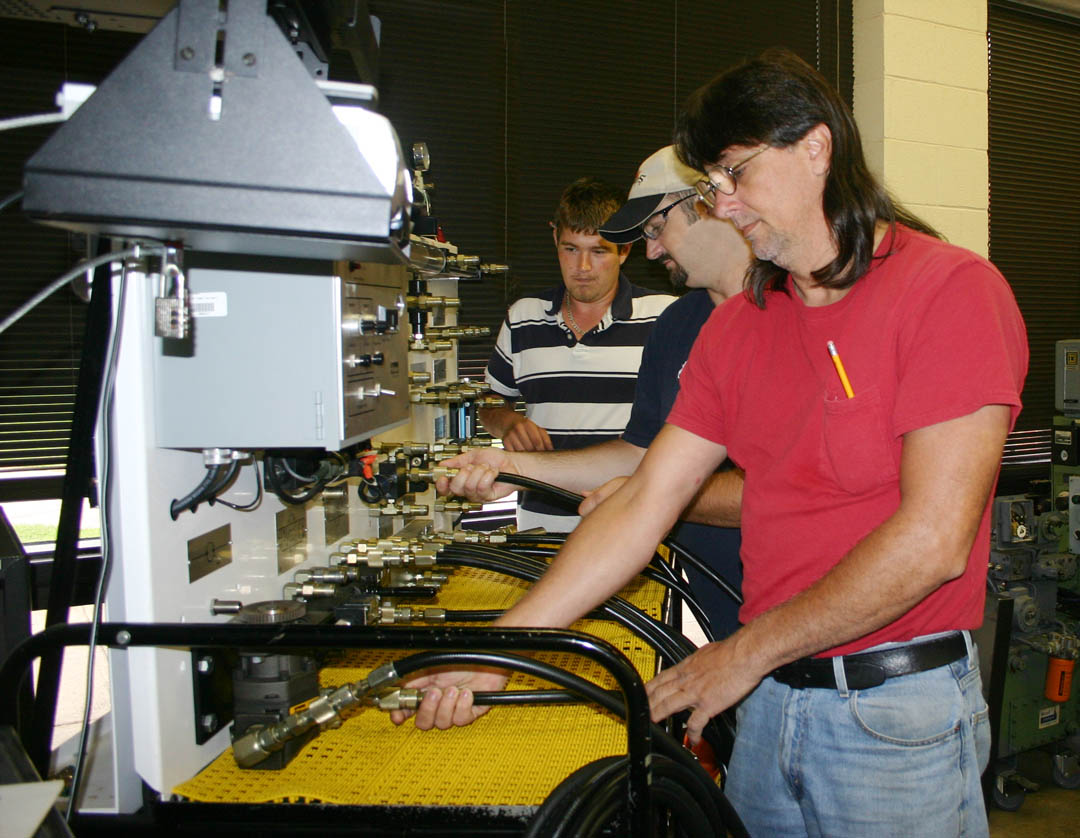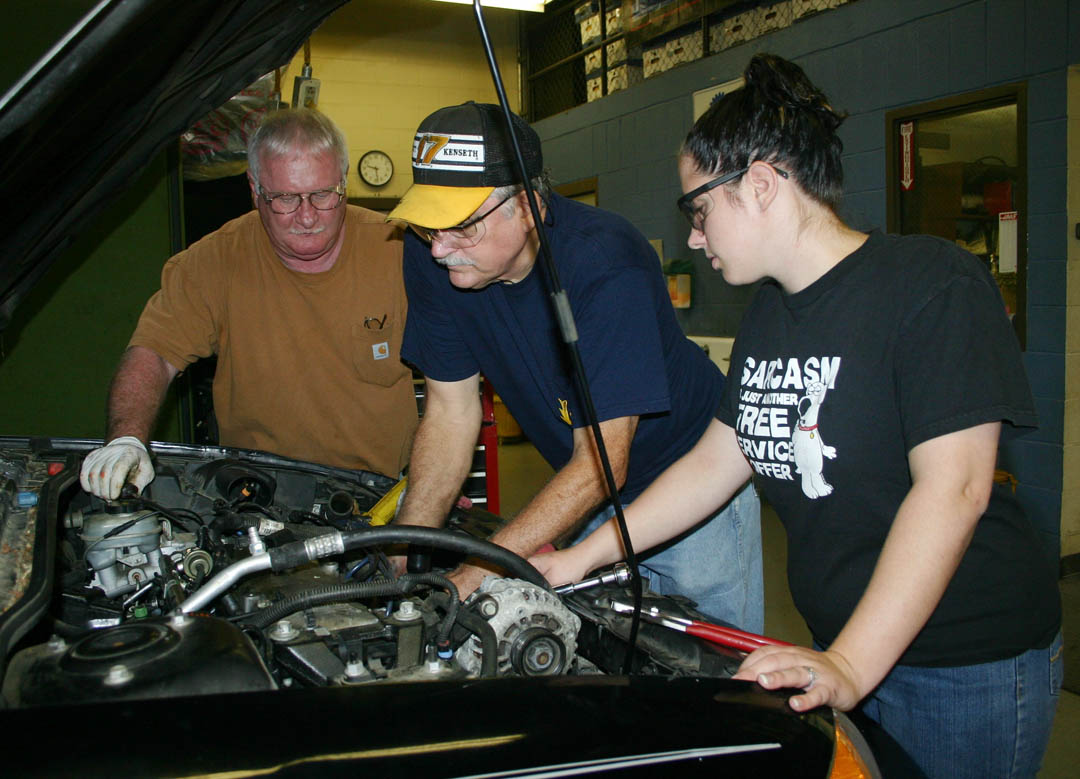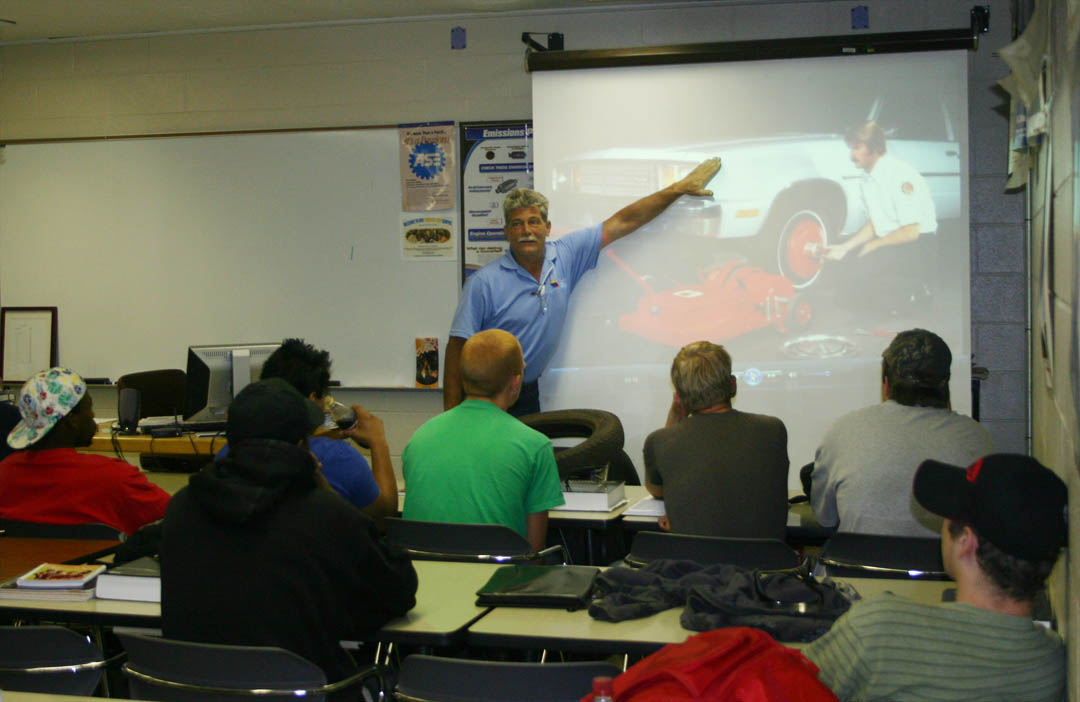SANFORD — More than 5,000 students have enrolled in Central Carolina Community College’s curriculum classes for the fall semester, setting a record for any semester in its 48-year history. The previous high was 4,867 in fall 2006.
“We are delighted that residents in our service area — and beyond — recognize Central Carolina Community College as the place to go to get a quality education, whether in preparation for transferring to a four-year institution or to get back into the workforce with a marketable skill,” said college President Bud Marchant. “They know a great education is here for them at reasonable cost and at convenient locations and times.”
More than 1,000 of the 5,000 students are not in classrooms at the college’s campuses and centers in Chatham, Harnett and Lee counties. They are taking their classes from the college online via distance education. Marchant said this is an important and growing trend, bringing educational opportunities to the public in their homes or other locations that fit their schedules and lifestyles.
In addition to the curriculum enrollment, more than 2,500 students have enrolled so far in continuing education classes for the fall semester, with about half in occupational courses. Many of these classes take less than a semester to complete, so this number is expected to climb during the semester.
Occupational technology curriculum programs, those that prepare people to enter the workforce with marketable skills, have shown the greatest enrollment increase. Many of those enrolling are workers who have been laid off or let go during the current recession. They are back at school to upgrade their job skills or learn new ones. Among the most popular curriculum occupational degree, certificate, and diploma programs this semester are Automotive Systems Technology and Industrial Systems Technology.
James Flynn, of Johnsonville, worked at GKN Driveline Components for 23 years before being laid off. He is attending CCCC with an educational grant from the U.S. Department of Labor’s Trade Adjustment Assistance (TAA) program. This pays to retrain workers whose jobs have been lost due to increased imports from or movement of jobs to other countries. TAA pays for up to two years of workforce training.
Flynn is working on two degrees: Industrial Systems Technology and IST-Biomaintenance. He expects work always to be available with this education.
“With an IST degree, you can fix anything, anywhere, anytime,” he said. “Every factory, every building has electrical, heating and air, and other systems. They all have to be maintained.”
Chuck Mann, Transportation Systems Technologies chairman, said enrollment in Automotive Systems Technology classes has increased by one-third over fall 2008. Many in his class are displaced workers who, in the economic downturn, lost jobs they had had for years.
“I wasn’t surprised at the increased enrollment,” he said. “Jobs to maintain and repair automobiles will always be here. Cars can’t be sent off to China for repair and shipped back.”
The variety of students signing up for automotive programs ranges from displaced workers Bobby Phillips, 61, of Sanford, and Clarence Frazier, 58, of Bear Creek, to Nici Tulley, of Cameron, a 2008 graduate of Western Harnett High School. All are working on degrees in Automotive Systems Technology. Phillips and Frazier plan to start second careers after years in manufacturing and textiles. Tulley started taking automotive classes in high school and found she has a knack for it.
“This is where my passion is,” she said. “That’s why I enrolled in this program.”
Many among the 5,000 are students who plan to transfer to a four-year college or university after graduating from or completing a University Transfer core of study at CCCC.
Completing the first two years of a four-year college education at Central Carolina costs a fraction of what it would at a university — an important consideration, especially during a recession. The college’s transfer students have always done well when they’ve transferred to a four-year institution.
Continuing education offers many short-term vocational classes to learn new job skills and get back in the workforce. In addition to its regular slate of continuing education occupational classes, the college is launching its JobsNOW: 12 in 6 program with a state grant from the North Carolina Community College System.
JobsNOW, specifically for displaced workers, focuses on job training that can be completed in six months or less. Under this initiative, the college is adding class sections for training in high-demand jobs such as welding, construction, medical office, and nursing assistant.
For more information on programs at Central Carolina Community College, go online to
www.cccc.edu or call the Chatham County Campus at (919) 542-6495, Harnett County Campus at (910) 893-9101, or Lee County Campus at (919) 775-5401.




